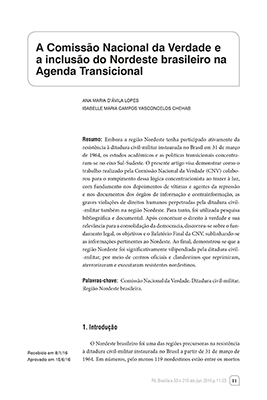Processo Civil Democrático: ativismo judicial frente às provas
Anna Isis Teran Silva
Isabela Dias Neves
Resumo
O presente artigo propõe-se examinar, sob a perspectiva da Constituição da República Federativa do Brasil de 1988 (CRFB), o ativismo judicial durante a fase probatória do processo, tema controvertido no direito processual civil. Objetiva-se elucidar como a postura ativista do juiz pode contribuir para a efetivação do Processo Civil Democrático quanto à determinação de produção de provas e ao seu convencimento motivado. Com o intuito de alcançar esse objetivo, foram feitas análises de textos legais e obras de diversos autores, nacionais e estrangeiros, sendo possível concluir que um processo constitucionalizado legitima a busca da verdade real. Com base nesse pressuposto, é exigida do juiz uma atuação de forma mais expressiva, de acordo com a condução democrática do processo e sempre respaldada pelos princípios processuais, a fim de construir juntamente com as partes uma decisão que seja justa e útil. Assim, é possível afirmar que o ativismo judicial, nos moldes tratados no artigo, pode ser um mecanismo hábil ao processo verdadeiramente democrático e tem como escopo primordial suprir deficiências probatórias, sem violar a imparcialidade, e alcançar um resultado mais próximo da realidade fática.
Palavras-chave
Processo. Democracia. Jurisdição. Ativismo. Provas.
Título, resumo e palavras-chave em inglês
DEMOCRATIC CIVIL PROCEDURE: JUDICIAL ACTIVISM FACING THE EVIDENCE
The present work aims to examine the judicial activism during the evidentiary phase of the process, from the perspective of the Constitution of the Federative Republic of Brazil 1988 (Constituição da República Federativa do Brasil de 1988) – CRFB –, controversial issue in civil procedural law. The objective is to elucidate, therefore, as the activist judge’s posture can contribute to the realization of democratic civil procedure regarding the determination of evidentiary and its motivated conviction. In order to achieve the proposed objective analysis of legal texts and works of various authors, national and international have been made, being able to complete that a constitutionalized process legitimizes the search for the real truth. From this assumption, it is required the judge a more expressive form of action, according to the democratic conduct of the process and always supported the procedural principles, in order to build together with the parties a decision that is fair and useful. Thus, it is clear, also, that the judicial activism, similar treaties in the article, can be a clever mechanism to truly democratic process and its primary scope suppress evidentiary deficiencies, without violating the impartiality, achieving a closer result of objective reality.
PROCEDURE. DEMOCRACY. JURISDICTION. ACTIVISM. EVIDENCE.
Como citar este artigo
(ABNT)
SILVA, Anna Isis Teran; NEVES, Isabela Dias. Processo Civil Democrático: ativismo judicial frente às provas. Revista de informação legislativa: RIL, v. 54, n. 215, p. 97-115, jul./set. 2017. Disponível em: <http://www12.senado.leg.br/ril/edicoes/54/215/ril_v54_n215_p97>.
(APA)
Silva, A. I. T., & Neves, I. D. (2017). Processo Civil Democrático: ativismo judicial frente às provas. Revista de informação legislativa: RIL, 54(215), 97-115. Recuperado de http://www12.senado.leg.br/ril/edicoes/54/215/ril_v54_n215_p97
